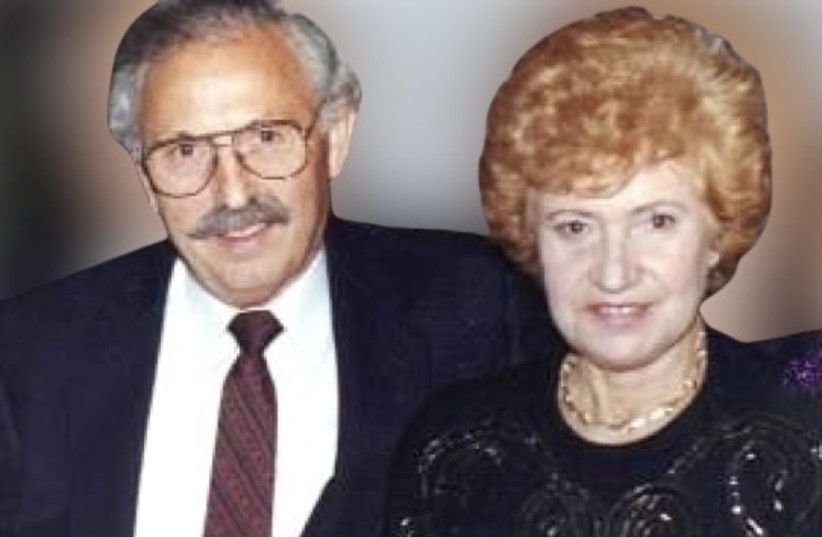My first language, as the daughter of Jewish Holocaust survivors, was Yiddish. I learned English in the streets of Williamsburg, Brooklyn, but Yiddish remains my inner voice. Far beispiel (For example):
My mother was a kind, humble and moral person with strong values. She was not a chit-chatter. She never gossiped. In fact, she never even talked a lot. But she had the ability to size up people and situations and say something so insightful that would stop me in my tracks.
If she heard people arguing, being cruel and demanding, or acting insensitively, she might say, “Keyner zet nit zayn eygnem hoyker” (No one sees their own hunchback).
She was telling me that no one realizes their own shortcomings. In doing so, she was teaching me to be tolerant, non-judgmental, forgiving and understanding. It was and remains a lesson on the importance of self-reflection.

Here is my mom on dating:
“Itlekhs tepl gefint zikh zayn dekly” (Every pot finds its own lid) and “Ah kiss und a glet blet nist keyn fleck” (A kiss and a caress don’t leave a blemish).
“Itlekhs tepl gefint zikh zayn dekly” (Every pot finds its own lid) and “Ah kiss und a glet blet nist keyn fleck” (A kiss and a caress don’t leave a blemish)
Advice from mom on dating
My mom credited my dad’s mother with having said it to her own daughters. In my mom’s world, there were no premarital kissen und glets.
Once, she heard of a young family member who hadn’t quite completed the credit hours necessary to graduate college. Nevertheless, the school let him walk in the processional and even called him up to receive a blank diploma.
“They didn’t want to fashemem (embarrass) him,” she said.
To embarrass someone was one of the worst things you could do in her world.
She was grateful for what she had.
“Your father came to this country mit leydik hent, she told me, holding up ten empty fingers. Earn your way and remember where you came from.
Some of her observations were almost prophetic.
“This child is raising himself!” she declared after observing my then three-year-old son.
I was offended. “Raising himself?” I doted on him! However, in the years to come I would watch him grow up, prematurely self-directed and self-sufficient, and realize that she had been right.
My father was the sardonic one. His Yiddish expressions had a hook.
The first time I heard him say, “Es helfen vi a toyten bankes” (That will help the way leeches help a corpse), I cracked up.
His piece de resistance on wasting your time?
“Ir ken nist machen ah streimel fun ah chazar ek” translated as “You can’t make a streiml from a pig’s tail.” In other words, give up!
My mom, as usual, without even trying, had the last word on futility.
“Et vet geyshen ven bay mir vet oysvaksn hor af der dlonge.”
Ouch! It will happen when hair grows on the palm of my hand.
Perhaps the most moving, unexpected and transformative Yiddish expression I ever heard was conveyed to me under dire circumstances.
My father had died.
Shiva had ended, and I returned to shul. I sat numbly during the services.
“May I go to the kiddish,” I asked the rabbi as the congregation filed out.
“Of course,” he said, “it’s Shabbos.”
The speaker, a visitor to the community, droned on and on.
Suddenly, a phrase popped into my consciousness.
“It’s a geshikhte aoyf di nektop,” I blurted out to the person sitting beside me.
He looked at me.
“I just got a message from my dad,” I whispered. “The phrase means ‘saga on the chamber pot.’”
He had one of those “If you say so” looks.
But I knew.
My father had told me to go on, to live life, and he did it in Yiddish, a Yiddish born in the lost towns of Eastern Europe and whose speakers learned to confront adversity with humor, insight and communal comfort. ■
Elaine Rosenberg Miller’s work has appeared in many publications. She is the author of Fishing in the Intercoastal and Other Short Stories; Selected Writings from Times of Israel; The Chinese Jew; The Trust; and Palmbeachtown. She lives in West Palm Beach, Florida.
